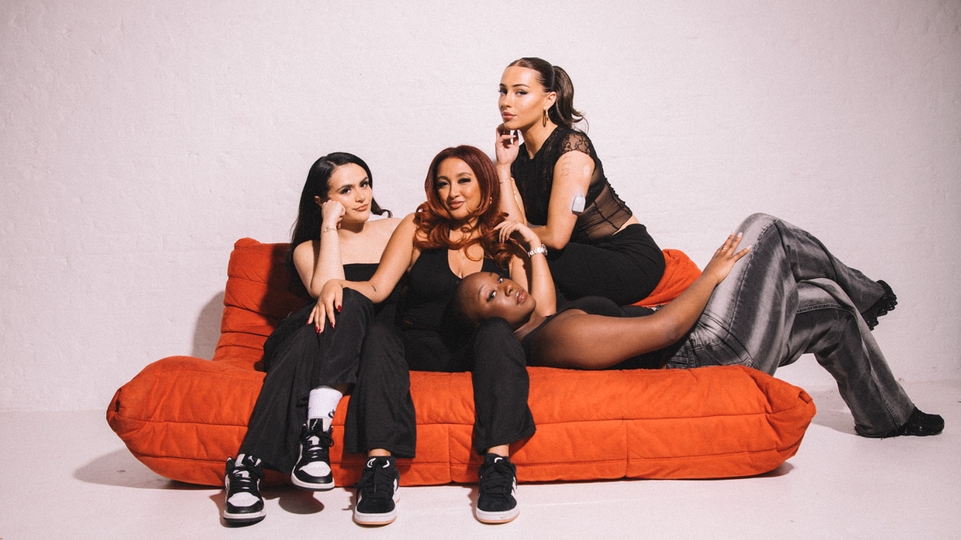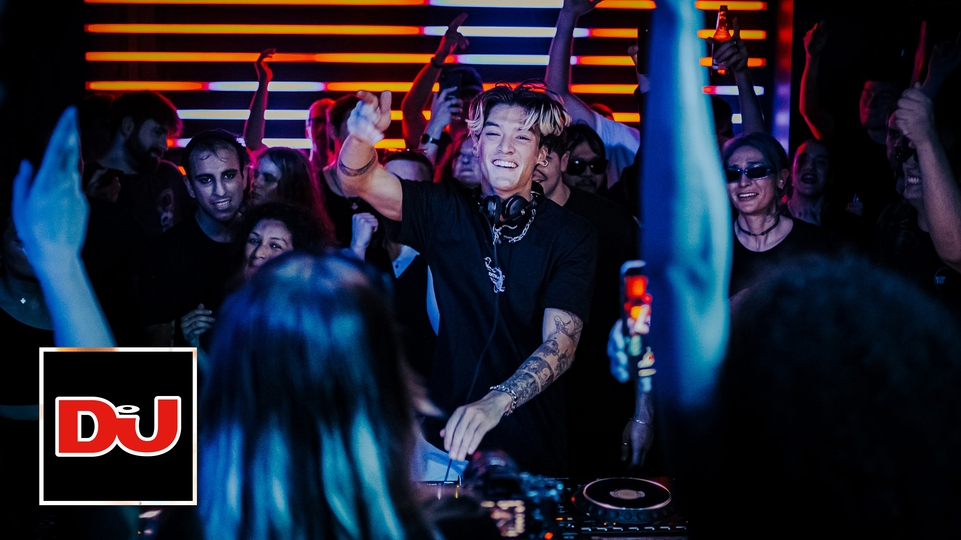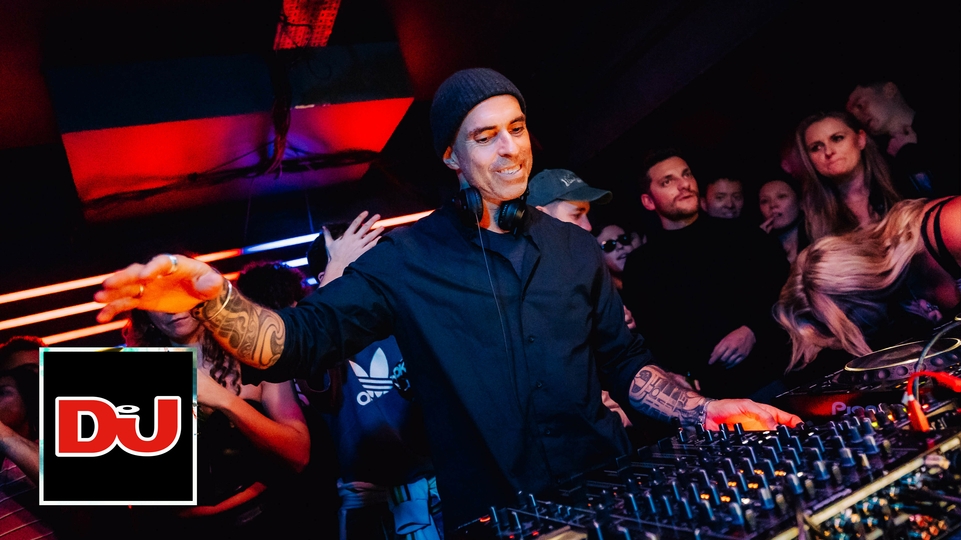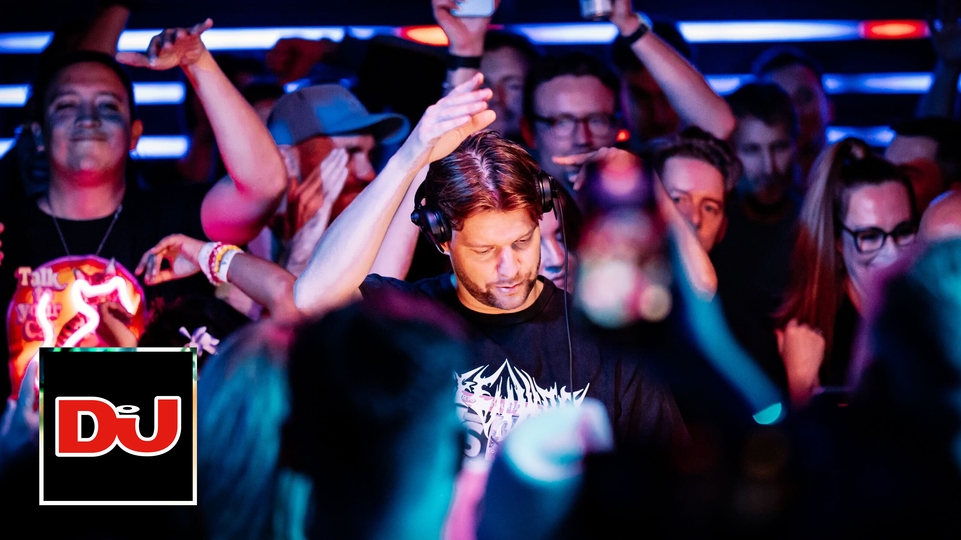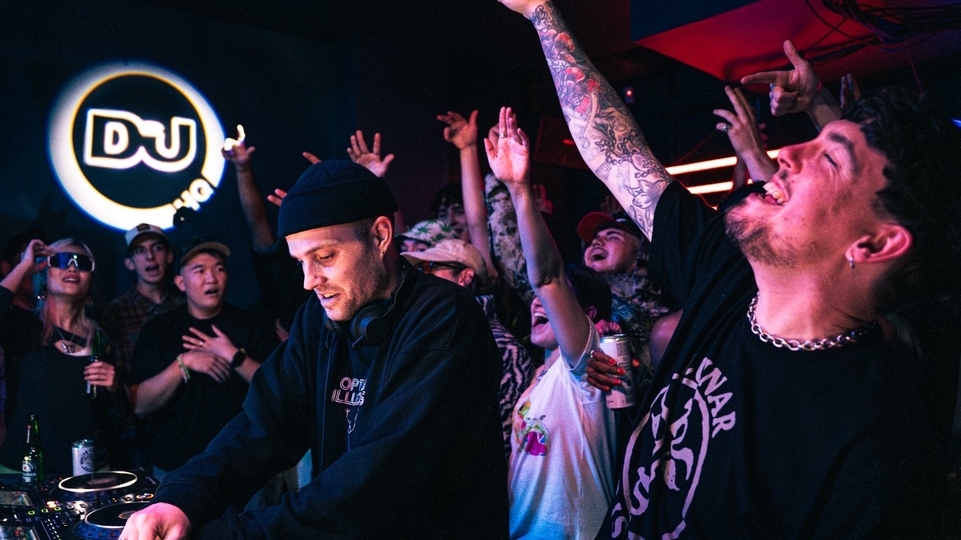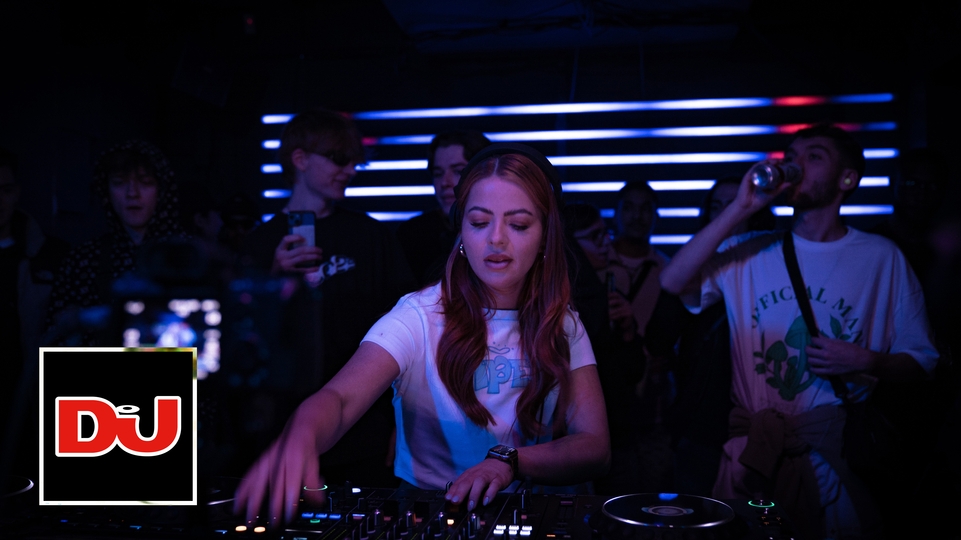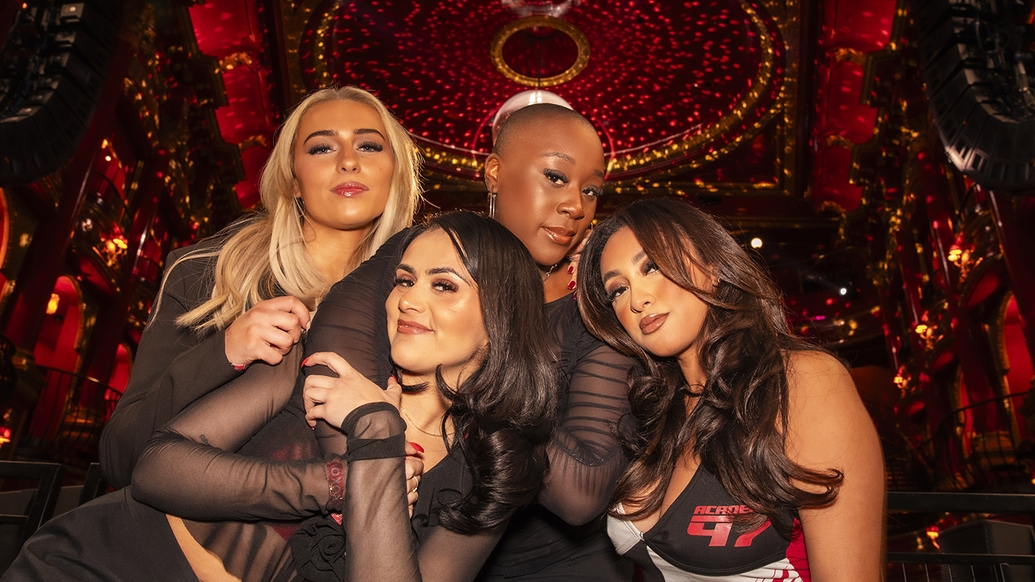
Girls Don’t Sync: rise together
Girls Don’t Sync are booting down barriers in dance music with their unrivalled energy and community-building ethos. Right off the back of their massive sold-out show at KOKO in London, and ahead of their sold-out headline show at The Warehouse Project in Manchester, they chat to Sophie Walker about creating a welcoming dancefloor, keeping things fresh, and inspiring others to follow their dreams.
Girls Don’t Sync have evolved at warp-speed over the past two years, compelled by a grounding ambition to embody the change they want to see in the world of dance music. The roots of the collective were established in promoting and self-funding their own events across Liverpool, elevating DJs and artists who were otherwise underrepresented; now, Matty Chiabi, Gaia Ahuja, Sophia Violet and Hannah Lynch are world-builders. Theirs is a community where your troubles get lost in the mix, where mentorship, confidence, good times and even better tunes are top of the bill.
“Infectious” is the word that orbits their performances, which have been demanded not only by UK strongholds such as Glastonbury, Boomtown and The Warehouse Project, but on an international scale across Europe. These four best friends pour drinks for their audience, make a point of connecting with people beyond the decks, chatting and sharing a dance, and in the case of their DJ Mag HQ performance last year, literally fall to their knees with the thrill of hearing the tricks in each other’s mixes. Girls Don’t Sync give the impression that they aren’t looking for fans, but friends; they don’t put on shows, but parties.
We catch the collective in the afterglow of their headline performance at KOKO, the iconic venue in Camden that has welcomed era-defining artists from Amy Winehouse to Prince. Not only did it sell out, being the fastest-selling event Girls Don’t Sync (GDS) have thrown so far, but it was also one of the most in-demand performances at the venue throughout 2023. To celebrate, they shared some extra treats, including surprise sets from a host of friends like p-rallel and Saint Ludo, and unveiling their original material for the first time (set to be released later in 2024). It was a night that saw their ambitions align with reality.
“For me, it represented doing the impossible,” reflects Matty. “When we started GDS, the intention was never to play these massive venues, but it was about growing our community and curating a line-up where we could play with our friends and have a great time doing what we love. To sell out one of the most iconic venues in London is literally a dream come true, but that isn’t what drives GDS.”
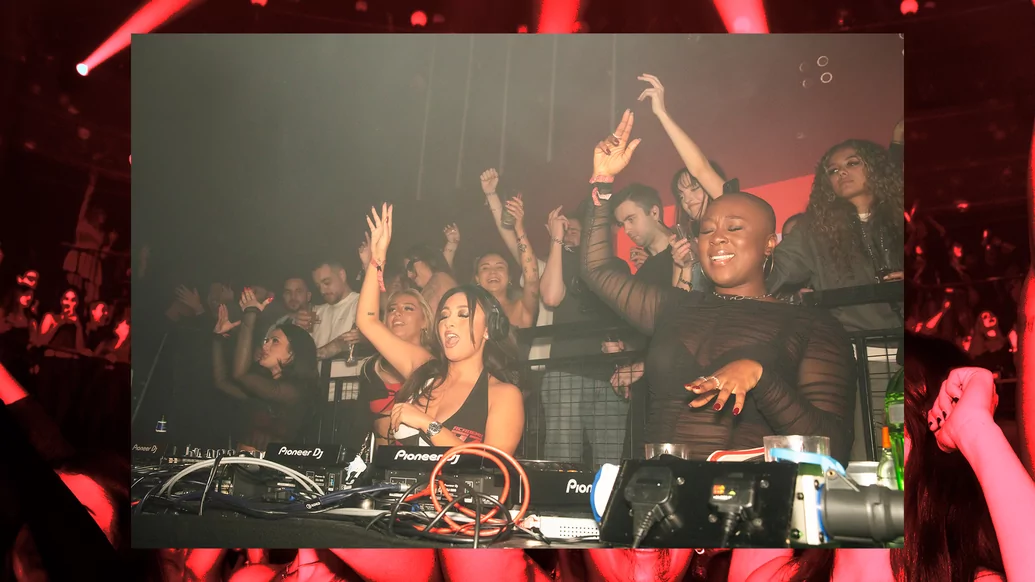
“It’s such a mishmash of cultures and identities, but ultimately, that’s exactly who we are — and especially the music that we play and what we advocate” – Gaia Ahuja (G33)
A friend told Gaia, who performs under the name G33, that the women’s bathroom — usually a safe space and sanctuary from the wild west of the dancefloor — was full of the same positive abandon that lay beyond its doors: “She was like, ‘It’s a nod to you guys. The people you’ve brought in are a reflection of the energy you give out’. She told me she’d never met so many like-minded, lovely people at a rave like that before. It feels like there’s one collective consciousness.”
When GDS looked up from the decks, they saw 1,500 people and none were alike. For them, that’s where success lies. “It’s young, it’s old, it’s Black, it’s white, it’s brown, it’s gay, it’s girly, it’s straight, it’s masc...” Gaia tells me. “It’s such a mishmash of cultures and identities, but ultimately, that’s exactly who we are — and especially the music that we play and what we advocate.”
The four DJs play B2B sets, each one unleashing a distinct flavour that is unique to their musical DNA. “We never practise together,” notes Hannah. “We all have surprises for each other because we have no idea what each other is gonna play — but that’s where the power has always been with us as a group because we don’t rehearse it. It’s all about living in the moment and bouncing off each other’s energy.”
While Matty gravitates towards UK funky, hard drum tracks and Afrobeats, Gaia pays homage to her London roots and South Asian heritage with a collision of grime and Arabic instrumentals. You’ll catch Sophia tapping into hard house and a lineage of rave classics viewed through a European lens, and Hannah is something of a musical excavator, surprising the others with the deep-cut edits and remixes which have led to their biggest moments.
“We’ve all got our own superpower,” says Gaia. “Obviously we share music, we talk about music, but there’s a moment before a set where I’ll say to Matty, ‘I’ve got a song I want to show you’, and I’m not only showing it to her, but thousands of people in that very moment. Even off the back of our DJ Mag stream, those reactions we have to each other are completely real because I don’t know what anyone is going to play. It’s all an element of surprise and inspiring reaction, and that’s what makes us so special.”
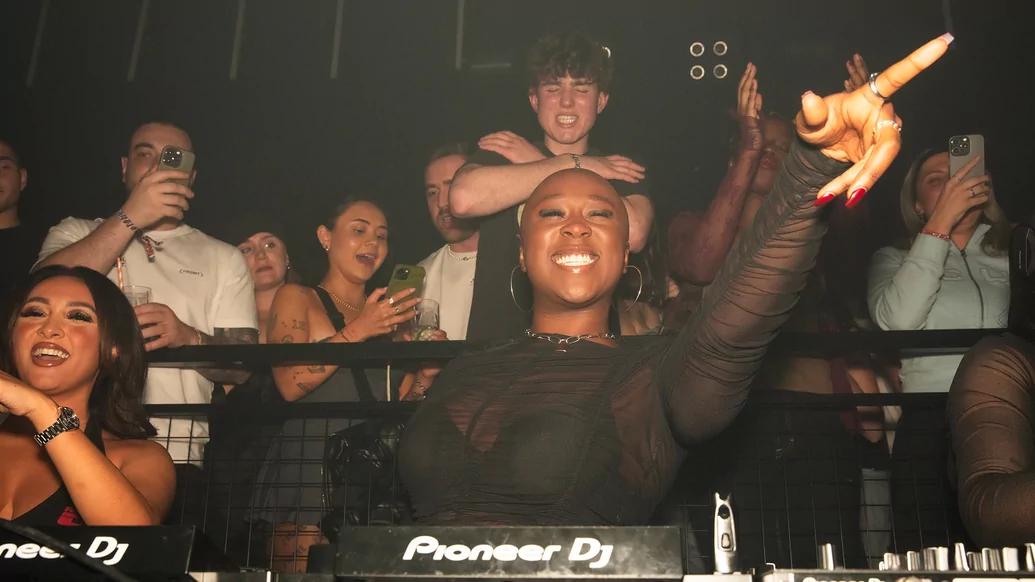
“At the end of the day, we’re just four friends who love music. Obviously, we created this, but I find it so funny when people get overwhelmed because we’re in this together. It’s one big party!” – Matty Chiabi
What defines a great set for GDS is more than just the tunes, it’s how they engage with the crowd. “Whether we’re making a drink and handing it to them over the decks, or inviting them onstage to dance with us, we really want to be the force that really brings people deep into our world,” Gaia tells DJ Mag. They’re flattered, but often baffled, when their audience meets them after a show with fan-level excitement. “At the end of the day, we’re just four friends who love music,” says Matty. “Obviously, we created this, but I find it so funny when people get overwhelmed because we’re in this together. It’s one big party!”
In fact, Alby Doyle, one of the guest DJs at their KOKO show, started as a front-row GDS partygoer. “He was such a vibe,” says Gaia. “He was gay and visibly queer, so we instantly became friends with him and he’s been supporting us ever since, coming to all our shows. He started DJing recently, so booking him for KOKO was a very full-circle moment of a fan becoming a friend.” Matty recalls a particular girl in the crowd who passed her a note saying that watching the GDS live-streams sparked inspiration. Now she’s a DJ herself and recently had her first set; the note was a thank you for leading her towards pursuing her passion. “I was holding back tears,” she says. “As much as we’re growing GDS as a brand, impact is something that is so important to us and inspiring the next generation of DJs — and particularly female DJs — is one of the greatest parts about what we do.”
Each of the GDS DJs give their time to mentorship and nurturing talent. After being gifted a DJing course for her birthday, Gaia reached out to Hannah — the only female DJ in Liverpool she knew of — asking if she could shadow her, and together they began hosting workshops at their local community centre. Now, GDS has their sights set on expanding the educational element of the collective into a scholarship or a developing free workshop on a larger scale with no barrier for entry.
But beyond the technicalities of DJing, GDS are looking to instil something even more foundational in their students: confidence. “At every session, we just chat about life, how they’re feeling, what they want to achieve,” says Matty. “I think that sits at the core of what we do as GDS. DJing is one thing, but being confident as a woman and being able to put yourself out there is just as important. Some of the things we’re subjected to, like people being so close and having a camera filming you 24/7 is daunting, and not everyone is equipped to deal with that. But we’re committed to inspiring people to feel confident in putting themselves out there, and that’s by far the most important thing I could teach those girls.”
One of Sophia’s students is now a fully fledged DJ, who the collective have booked to support them at their shows. “We will constantly support our students even when they don’t come for lessons anymore, in any area that they need,” notes Hannah. “It’s a sisterhood.”
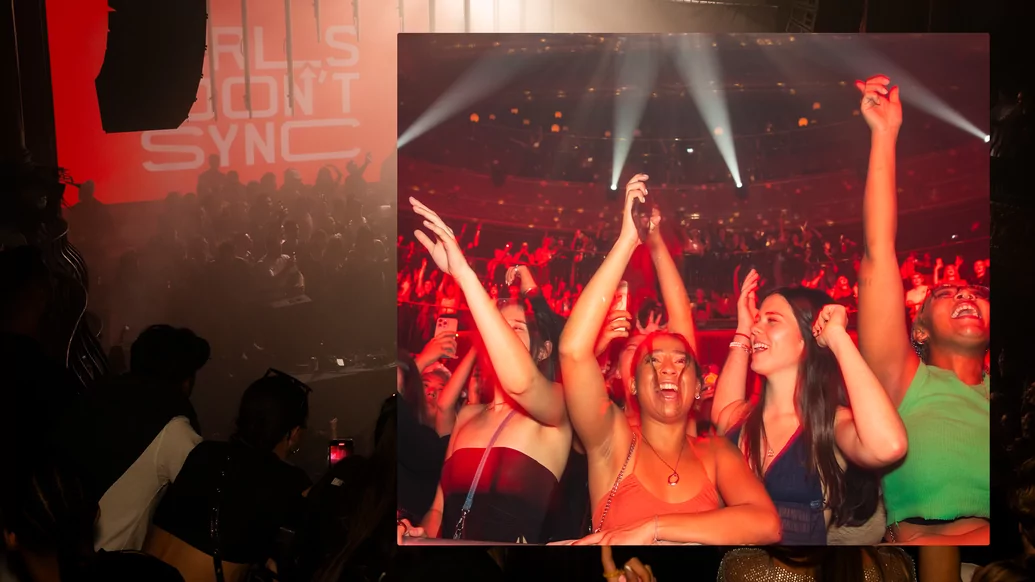
If you’re going to a GDS performance, forget looking for set times. “Because people’s concentration is so low, people will go to an event to see one specific DJ and not take in the event as a whole experience,” Sophia explains. “They’ll take it almost as a show, which is not what electronic music is meant to be. You know, people will now face the DJ instead of facing their friends to dance with each other. We’re of the mindset that everyone will have a better time if they come without expectations, which is important when our younger audiences have grown up on TikTok through the pandemic and find it hard to engage with a whole experience rather than an individual moment.”
They also carefully create their line-ups, weaving in particular sounds to build a wider tapestry. “We curate it sonically, we curate it with like-minded DJs that we’re passionate about — we put a lot of effort and energy into it,” says Gaia. “From the very start, we’ve always been there to champion upcoming talent, and we’ve been able to set a precedent on our tour, where all the DJs we’ve booked have been able to experience what we have and feed off our crazy crowds.”
At the core of GDS is dismantling the tired notions of what electronic music is and who can be part of the scene. “When I first learned how to DJ, which wasn’t too long before GDS, I felt I had to sit in a particular world which was not ‘electronic’ at all,” shares Matty. “I think, through the evolution of GDS, we’ve proven that you’re allowed to like dance music if you’re a Black woman; you’re allowed to like dance music if you’re a woman, or whoever you are. It doesn’t need to look a certain way. I don’t want to contradict what we’ve said about our own individual flavours, but there’s an expectation that I’m going to play Afro sounds, and on the one hand, yes, I will, but I might also play hard house. I might play something that’s further away from my culture. I am allowed to like dance music, and there are no rules and no boundaries. And I think that might be why so many people have taken to us, because it’s kind of like, ‘Oh, thank god, I’m allowed to enjoy this’.”
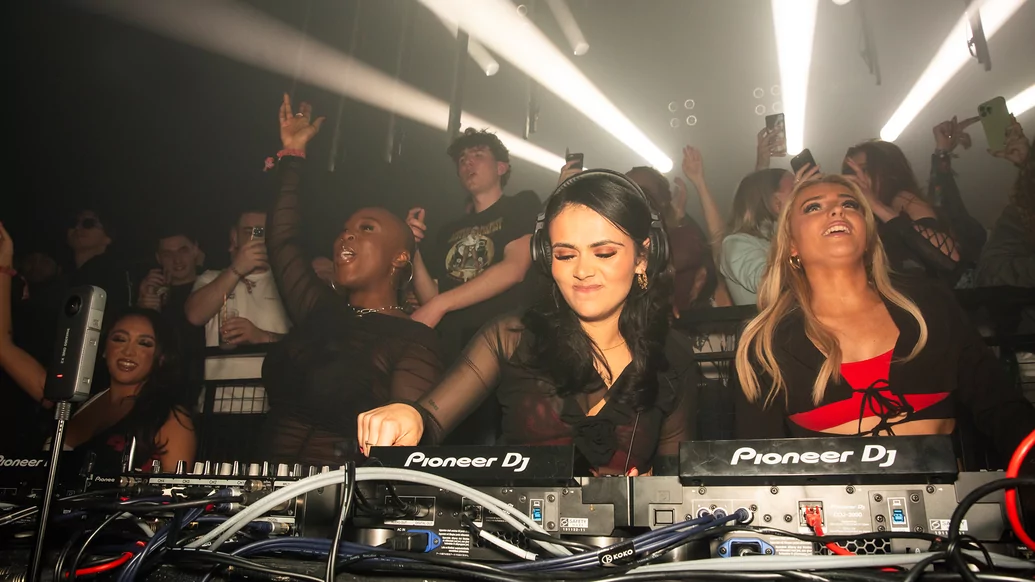
GDS relay stories from the start of their careers about turning up to clubs they were booked to play and people not believing they were the DJs. They’ve been patronised by men both in real life and online who underestimated their craft, and often wore baggier clothes so as not to be sexualised by their audience. But now, as their reputation has grown, this negativity has been drowned out by the strength of their ever-expanding community. “It used to be just our friends and family sticking up for us against sexist comments; now there’s just a massive swell of love and support from genuine people fighting our corner,” remarks Sophia. “They genuinely feel it because they recognise themselves in us. I see differences in how people react to us existing. I think there was a demand here that people didn’t even realise they had until we started supplying it.”
While they shape up to shift GDS into top gear for 2024 with original releases and a tour across Australia and New Zealand already announced, they’re also taking time to reflect on just how transformational their journey has been so far. “We’re staying true to ourselves and who we are and what we set out to do,” says Sophia. “And, of course, it’s important to think about those big moments and what you see up front, but it’s also important to get to the core of those moments and what brought us this far in the first place.”
When we ask how they define success, Gaia offers, “Trust.” The confidence they’ve won in their audience is their motivator. “The fact that we’ve been given the power to change dance music from within is incredible. It’s not for us. Everyone that buys tickets and comes to see us or sends us a DM on Instagram is who we’re doing this for. We’d be nothing without them.”
